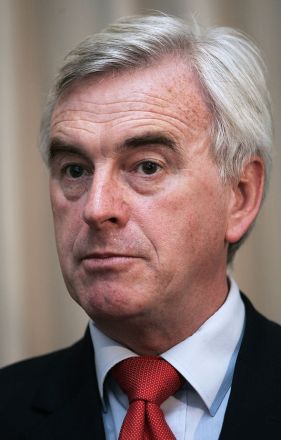
Image by raymondclarkimages. All images in this article are via Flickr.
It came as a surprise to me the other day when I found myself thinking about who the new James Bond would be. I generally regard the James Bond films as gung ho boy’s own silliness at best and tasteless romancing of Britain’s colonial past at worst. I seperate Daniel Craig’s first film, Casino Royale and Timothy Dalton’s second, Licence to Kill, from this as I felt there was more going on in those two. I know that OHMSS is meant to be the film buff’s fave but I haven’t seen it in years and can’t imagine when I’ll find the time to now.
And yet. I’m not immune to the Bond effect. My family had a CD of all the Bond themes that we used to listen to on the seven hour journey down to Cornwall from Sheffield on family holidays. I’m pretty sure I can name and sing every single one of them, in order, up to Goldeneye (Tina Turner – superbly nasal delivery of the eponymous tune).
And, in a similar way to professional wrestling, Bond movies provide a unique view into the popular culture of the time they were made. Often it’s a crass, offensive or confusing view – but it can still be valuable. Was Quarrel, Bond’s Cayman Islander sidekick in 1962’s Dr No, the first black sidekick character to be killed off in an action movie in order to present the actions of the white protagonist in a better light as the avenging hero? I’d be interested to know if anyone has an earlier example of this trope, which later became so common it passed into the realm of farcical stereotype.
Or look at Moonraker where the ludicrous lazer guns borrowed from the unusable props bin left over from Star Wars showed that even a franchise as British as James Bond wasn’t  immune to the influence of the American sci-fi saga.
immune to the influence of the American sci-fi saga.
Or how about A View to A Kill, where the sex scene between Roger Moore and Grace Jones has to go down as one of the strangest ever committed to film. Is it meant to be funny? Erotic? Both? Either way, the collision of aged White ‘ding-dong’ style Englishness in Moore and the unapologetically powerful Blackness of Jones is certainly worthy of its moment in cinematic history.
The list goes on and on, but enough preamble. Here are the actors I would consider casting as the title role in the next Bond film:
David Oyelowo. The Selma actor, at 39, would represent a relatively seamless transition from Craig as a charismatic and intelligent actor on the cusp of middle age, who also has a body of serious character work behind him. Not only that, but he’s portrayed a member of MI5 before, on the BBC’s Spooks between 2002 and 2004. Oyelowo would allow the franchise to continue its half serious/half silly  exploration of post-Snowden intelligence work and paranoia without a great deal of transition and is my continuation candidate.
exploration of post-Snowden intelligence work and paranoia without a great deal of transition and is my continuation candidate.
John Boyega. The new Han Solo could offer a return to a more family-friendly Bond, having proven he’s capable of fronting a big, mainstream franchise with Star Wars. By becoming Bond, Boyega, who is 23, would have the strong back-up franchise that Indiana Jones was for Harrison Ford. He could also help develop a broader and more diverse audience than Craig – Boyega could be Bond’s ticket to real international box office gold – not just in the UK.
It would also provide an opportunity to refocus the series. Out with the sulky post-Cold War miserablism and in with a new cast of young, smart, sexy millennials. Like J.J Abrams already did with his Star Trek reboot basically.  Boyega is my candidate to re-energise and refocus the franchise who has the best chance of bringing Bond to a larger and more diverse audience.
Boyega is my candidate to re-energise and refocus the franchise who has the best chance of bringing Bond to a larger and more diverse audience.
Jack O’Connell. My final pick is probably the least likely to land the role but is also the most interesting of the trio because I think O’Connell could take Bond to a very dark place. The same place that was occasionally hinted at by Craig in Casino Royale. Remember that Bond is, in reality, a state-sanctioned murderer. Which we’re apparently okay with provided he’s only murdering faceless goons and people who want to buy up the water supply of Bolivia (at least I think that’s what was going on in Quantum of Solace).
So picture this: as a young (O’Connell is 25) recently demobbed soldier suffering from PTSD, Corporal (I know Bond’s meant to be Navy and I don’t care geeks) James Bond is unable to fit back into the old life he knew. Following an explosion of shocking violence when an old girlfriend is being harassed by some thugs, a police manhunt turns into a deadly game of  cat and mouse around a series of towers blocks (think an urban First Blood). O’Connell was superb in a similar scenario in ‘71 as a young British soldier being hunted by the IRA through a claustrophobic and rain-soaked Derry landscape.
cat and mouse around a series of towers blocks (think an urban First Blood). O’Connell was superb in a similar scenario in ‘71 as a young British soldier being hunted by the IRA through a claustrophobic and rain-soaked Derry landscape.
After finally being caught, Bond is arrested and looking at a life behind bars unless he agrees to join the Government’s top secret ‘double O’ project. As a new agent, Bond is subjected to shock therapy that alters him fundamentally, turning him into a man capable of murdering anyone: any men, women or children that are believed to pose a threat to the Government. He is transformed into a shaved-headed, remorseless and utterly cold assassin who’s chillingly effective at killing people.
O’Connell’s Bond could be the cherubic and nightmarish assassin that causes us to consider both the depiction of violence in cinema and our complicity in the real world carnage which occurs in the name of our protection.
Note: Having a minor picture organisation fail today so captions are here instead of below photos. From top to bottom: Grace Jones, David Oyelowo, John Boyega, Jack O’Connell.















